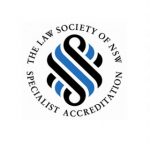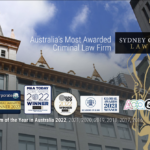Australia Must Establish a National Register of Lawyers

On 24 January 2023, a young man was representing a client for a defended criminal law hearing at Sydney’s Downing Centre Court when he brought to the Presiding Magistrate’s attention that he had been advised he could not continue to represent his client due to issues with his practising certificate.
That information understandably frustrated the Magistrate as, by that stage of the proceedings, both the young man and the police prosecutor had questioned the officer in charge of the matter on the witness stand.
His Honour is reported to have then said to the young man, “If you know more than what you’re telling me, are you a solicitor of the Supreme Court?”.
It should be noted that solicitors in New South Wales are required to be admitted to the roll of the Supreme Court in order to be eligible to then obtain a practising certificate – which is essentially a licence to practise law in Australia.
In the result, the hearing was halted and the defendant’s case was adjourned until later this month.
The Law Society of New South Wales is reported to have subsequently confirmed that the young man does not hold a practising certificate in our state, and that it is further investigating the matter.
Those investigations are said to include ascertaining whether the man holds a practising certificate in another Australian jurisdiction; a matter which one would have thought could be easily ascertained by conducting a search of a central database of registered lawyers across our nation.
Sadly, such a database does not exist.
The young man has been representing clients for a criminal defence firm in Sydney for some time, and that firm had been marketing him on their website as a ‘Junior Associate’.
‘Junior Associate’
It is common knowledge in the legal profession that the young man at the centre of the debacle has been representing clients in criminal cases for some time for a specific criminal defence law firm in Sydney.
In fact, he had been marketed on the firm’s website as a ‘Junior Associate’.
And in fairness, it appears he has completed a law degree in New South Wales but has not undertaken the formal requirements thereafter; which are completing a graduate diploma in legal practitioner, undertaking practical legal training, being added to the Supreme Court’s roll of lawyers and applying for and obtaining a practising certificate.
More questions than answers
In any event, the case has Sydney’s legal profession talking – with many asking many fair and important questions, such as:
- Was the young man an employee of the firm? (the firm’s marketing of him as their ‘Junior Associate’ suggests he was an employee rather than an independent contractor),
- What was contained in his resume? (this should be with the firm)
- Who undertook the hiring process/made the decision to hire him?
- What checks were undertaken during the hiring process. Specifically, were checks made to confirm he held a practising certificate?
- If he was initially hired as law clerk (a person who is studying law), how could the firm possibly be unaware he was not thereafter admitted as a lawyer? In that regard, it should be noted that it is customary for law firms to pay for the practising certificates of their lawyers and to notify the Law Society that the lawyer is employed by them. The Law Society’s register of lawyers will then link the lawyer to the firm.
- What were the communications between the young man and the law firm regarding his status as a lawyer?
- When did he commence working for the firm as a lawyer?
- If he commenced before 1 July 2022, what happened when the firm paid the required annual fee to renew his practising certificate? Note that it is customary for law firms to pay this fee on behalf of their lawyers before the start of each financial year,
- Which clients did the young man give legal advice to / conduct legal work for / attend court for? What was the nature and extent of that advice / the charges / the proceedings? It is noted he was independently representing a client for a defended criminal law hearing when his status became an issue,
- What has the firm done to rectify the situation? Have all of the clients he advised / represented been informed? Has financial compensation been paid? Have the courts before which the man appeared been notified? Have applications been made for review?
The list goes on and on, and it is hoped the questions will be answered in due course.
The upshot
The potential consequences of the mainstream media’s reporting of the young man’s cases are many.
Perhaps most importantly in an overall sense, the case has the potential to undermine the integrity of the justice system as a whole and, more specifically, criminal lawyers within the legal profession – whose ethical and legal integrity recently took a huge hit as a result of the conduct of barrister Nicola Gobbo and Victoria Police, known as the ‘Lawyer X scandal’.
As for the clients represented by the young man – and, again, assuming he did not hold a practising certificate at the time – their cases will need to be reviewed with a view to determining whether there may have been a miscarriage of justice, giving rise to potential avenues of appeal.
As for the law firm concerned, it is understood an investigation into matters such as those previously listed is already underway, which could have ramifications depending on what is found to have occurred.
Impetus for change
All of that said, the case also has the potential to trigger long-overdue change in the way the legal profession – a self-regulating industry – is in fact regulated and managed.
In that regard, it may give cause for law societies and institutes across Australia to send a strong message that lawyers and law firms have ethical and legal obligations to conduct proper due diligence and take proactive steps to ensure the interests of their clients are protected – indeed, these obligations are clearly set out in each state and territory’s Conduct Rules; rules which are separate and distinct from, and additional to, the general law.
It is also hoped the case will highlight the desperate need for a central, easily accessible, sufficiently informative register of lawyers across the nation, so that members of the public can quickly check whether the person representing them is in fact certified to do so.
And this brings us to current problem: that no such register in Australia despite lawyers being permitted to practise across the nation.
Practising across jurisdictions
In the United States, lawyers are licensed on a state-by state basis, which means a lawyer (or ‘attorney’) must hold a valid state license to undertake legal work in that particular state.
For this reason, lawyers in the United States may each hold several licences; one for each state in which they intend to practise or in fact practise.
The situation in Australia is different.
Under our state’s Legal Profession Uniform Law – jurisdictional iterations of which are in force across the nation – a lawyer in one state or territory is permitted to practise law in any other.
And while the rules vary slightly from jurisdiction to jurisdiction in terms of notification requirements, the bottom line is that a person who holds a practising certificate in one Australian jurisdiction is perfectly entitled to practise law in any other.
So, for example, a lawyer who studied law and holds a practising certificate in Western Australia is perfectly entitled to represent clients in New South Wales courts, despite not holding a New South Wales practising certificate.
One of the problems we currently face is that the said lawyer’s client would not be able to conclusively determine whether the lawyer is in fact certified to practise law by conducting the standard online search of New South Wales lawyers.
The lack of a central register represents a loophole for fraudsters
And while this may create concerns for clients, it also makes it easier for unscrupulous opportunists to get away with falsely representing themselves as lawyers.
This is because it makes it possible for such persons to counter challenges regarding certification by pointing to the fact that cross-jurisdictional practise is permitted in Australia.
So, for example, such a person might meet a query to the effect of, ‘Hey, why aren’t you on the register of lawyers?, with something like, ‘Oh, didn’t you know you don’t have to be admitted in New South Wales to practise here. You can be admitted anywhere in Australia’.
Such a response could enable a charismatic but fraudulent actor to allay the client’s concerns.
And therein lies the problem: despite allowing lawyers to practise nationwide, state and territory law societies / institutes have failed to implement safeguards against the misuse of the national scheme, perhaps the most striking failure being the absence of a central register of lawyers.
Adding to the problem, a number of the databases that exist lack sufficient functionality, making it prohibitively difficult to determine whether a specific person is a certified lawyer.
Australia must have a central register of lawyers
This situation needs to change: a central database must be established containing details of all lawyers across the nation which to enable anyone to quickly determine:
- Whether a person has been admitted as a lawyer,
- Whether he or she is a barrister or a solicitor,
- The date on which the person was admitted as that type of lawyer,
- The date where applicable he or she was accepted to the bar,
- Whether he or she holds a current practising certificate,
- The jurisdiction in which the practising certificate is held,
- The type of practising certificate held,
- Whether he or she has any additional certifications, such as Accredited Specialisation for solicitors or Senior, Queen’s or King’s Counsel for barristers,
- The law firm (for solicitors) or chambers (for barristers) to which he or she is attached,
- A link to the website of the law firm or chambers (where applicable), and
- The lawyer’s contact details, such as email and telephone number.
Such a database would enable anyone to quickly determine whether someone is a qualified lawyer, as well as help members of the public to make informed decisions about whether a person they have engaged, or intend to engage, as a lawyer is suitably experienced to provide them with advice and/or representation for the legal issue they are facing.
Databases of lawyers across the nation
The table below contains links to existing databases of lawyers across Australian jurisdictions, as well as notes relating thereto:
| Jurisdiction | Lawyer type | Database name | Link | Notes |
| New South Wales | Solicitors | Law Society of New South Wales Register of Solicitors | www.lawsociety.com.au/register-of-solicitors | Has lawyer name, name of associated firm, date of admission, type of practising certificate, whether Accredited Specialist, contact details. No photo of lawyer. |
| Barristers | New South Wales Bar Association Find a Barrister | https://find-a-barrister.nswbar.asn.au/ | Has barrister name, photo, year admitted as a lawyer, year accepted to the bar, university where completed studies, name of chambers, link to chambers website, contact details, whether SC / QC / KC, whether accepts briefs directly from public | |
| Victoria | Solicitors | Law Institute Victoria
Find Your Lawyer Referral Service |
https://www.liv.asn.au/FindYourLawyer | Has law firm name in search, areas of practice, location, general contact details of the law firm, languages spoken, area of specialisation. Does not list employed lawyers of that firm. |
| Victorian Legal Services Board | https://lsbc.vic.gov.au/consumers/registers | Has lawyer name, name of associated firm, does not show date of admission, does not show type of practising certificate, does show whether Accredited Specialist. Does not display contact details at all. No photo of lawyer. | ||
| Barristers | The Victorian Bar | https://www.vicbar.com.au/find-barrister | Has barrister name, photo, year admitted as a lawyer, year accepted to the bar, does not show university where completed studies, name of chambers but no website, contact details, lists division of bar role, does not state whether accepts briefs directly from the public | |
| Queensland | Solicitors | Queensland Law Society | https://www.qls.com.au/find-a-solicitor/search | Has lawyer name, name of associated firm, date of admission, type of practising certificate, whether accredited specialist, does not list contact details. No photo of lawyer. |
| Barristers | Bar Association Queensland | https://qldbar.asn.au/barrister-search | Has barrister name, some have photo, does not show year admitted as a lawyer, year accepted to the bar, university where completed studies, name of chambers, link to website, contact details, does not state whether SC / QC / KC, does not state whether accepts briefs directly from public | |
| South Australia | Solicitors | The Law Society of South Australia | Law Society Website: Register Practising Certificates | Has lawyer name search by last name only, does not listed associated firm, lists date of admission, does not list clearly type of practising certificate, does not list whether Accredited Specialist, does not list contact details, no photo of lawyer |
| Barristers | South Australian Bar Association | https://sabar.org.au/barrister-search/#!directory/map/ord=lnm | Has barrister name, photo, year admitted as a lawyer, year accepted to the bar, does not show university where completed studies, name of chambers, link to chambers website, contact details, does not state whether SC / QC / KC, does not state whether accepts briefs directly from the public | |
| Western Australia | Solicitors | The Law Society of Western Australia | https://www.lawsocietywa.asn.au/find-a-lawyer/ | Cannot search lawyer by name, search brings up law firms with general contact information only, search can be done to narrow the area of law |
| Barristers | Western Australian Bar Association | https://www.wabar.asn.au/find-a-barrister/ | Has barrister name, photo, year admitted as a lawyer, year accepted to the bar, does not show university where completed studies, name of chambers website, contact details, does not state whether SC / QC / KC | |
| Tasmania | Solicitors | The Law Society of Tasmania | https://www.lst.org.au/find-a-lawyer/ | Has lawyer name, name of associated firm, date of admission, type of practising certificate, does not state whether Accredited Specialist, contact details. No photo of lawyer. |
| Barristers | Tasmanian Bar | https://tasbar.com.au/barristers/ | Has barrister name, photo, year admitted as a lawyer, year accepted to the bar, does not show university where completed studies, name of chambers website, contact details, states whether SC / QC / KC | |
| Australian Capital Territory | Solicitors | ACT Law Society | https://www.actlawsociety.asn.au/find-a-lawyer | Has lawyer name, name of associated firm, does not show date of admission, type of practising certificate, does not state whether Accredited Specialist, contact details. No photo of lawyer. |
| Barristers | ACT Bar Association | https://www.actbar.com.au/barristers/find-a-barrister/ | Has barrister name, no photo, does not show year admitted as a lawyer, year accepted to the bar, does not show university where completed studies, name of chambers website, contact details, does state whether SC / QC / KC | |
| Northern Territory | Solicitors | Law Society Northern Territory | https://lawsocietynt.asn.au/nt-legal-directory/current-nt-practitioners.html | Has lawyer name, name of associated firm, does not show date of admission, type of practising certificate, does not state whether Accredited Specialist, contact details. No photo of lawyer. |
| Barristers | Northern Territory Bar Association | https://ntbar.asn.au/ | Has barrister name, photo, does show year admitted as a lawyer, year accepted to the bar, does show university where completed studies, name of chambers’ website, contact details, does not state whether SC / QC / KC |
The Bar Association databases are generally far superior to those for solicitors.
Indeed, a quick look through the databases would inform and assist a savvy fraudster on duping an unsuspecting victim; specifically, to claim they are from Western Australia whose database does not enable searches for individual lawyers.
The following table contains the names, telephone numbers and email addresses of regulatory bodies across the nation, which can be used to make enquiries, or follow up on unsuccessful online enquiries:
| Jurisdiction | Name of regulatory body | Email address | Telephone number |
| New South Wales | NSW Law Society | lawsociety@lawsociety.com.au | (02) 9926 0333 |
| New South Wales Bar Association Find a Barrister | enquiries@nswbar.asn.au | (02) 9232 4055 | |
| Victoria | Law Institute Victoria
Find Your Lawyer Referral Service |
inquiries@liv.asn.au | (03) 9607 9311 |
| Victorian Legal Services Board | consumerenquiry@lsbc.vic.gov.au | (03) 9679 8001 | |
| The Victorian Bar | vicbar@vicbar.com.au | (03) 9225 7111 | |
| Queensland | Queensland Law Society | info@qls.com.au | (07) 3842 5888 |
| Bar Association Queensland | qldbar@qldbar.asn.au | (07) 3238 5100 | |
| South Australia | The Law Society of South Australia | email@lawsocietysa.asn.au | (08) 8229 0200 |
| South Australian Bar Association | sabar@sabar.org.au | 0417 280 109 | |
| Western Australia | The Law Society of Western Australia | info@lawsocietywa.asn.au | (08) 9320 8600 |
| WA Bar Associations | info@wabar.asn.au | (08) 9220 0477 | |
| Tasmania | The Law Society of Tasmania | info@lst.org.au | (03)6234 4133 |
| Tasmanian Bar | admin@tasbar.com.au | (03) 6223 3844 | |
| Australian Capital Territory | ACT Law Society | mail@actlawsociety.asn.au | (02) 6274 0300 |
| ACT Bar Association | ceo@actbar.com.au | (02) 6257 1437 | |
| Northern Territory | Law Society Norther Territory | lawsoc@lawsocietynt.asn.au | (08) 8981 5104 |
| Northern Territory Bar Association | president@ntbar.asn.au | (08) 8982 4700 |
An explanation for the law firm?
The information contained in the first table might enable the law firm at the centre of the current controversy to assert that some due diligence had been undertaken but they had been duped (specifically, if the applicant claimed to be from Western Australia), it should also be noted that all available material suggests the young man graduated from a university in New South Wales.
That being the case, it might be difficult for the firm to assert they believed he was from a jurisdiction (namely WA) that might require a phone call or email to confirm certification to practice, let alone to claim their duty of care was discharged solely by an attempted but unsuccessful online check.
As a sidenote, our searches suggest the young man is not certified as a practising lawyer in any Australian jurisdiction.
All of that said, more information is needed before determinations can be made regarding the young man’s case.
Suggested page for central register
Turning back to the issue of the lack of a central register, individual entries which appear along the following lines on that database would help protect the public from unscrupulous actors and law firms, and informing them on their choice of legal representative:
| Name of lawyer | John Smith |
| Type of lawyer | Solicitor |
| Date of admission as lawyer | 01/01/1990 |
| Date of acceptance to bar | N/A |
| Current practising certificate | Yes |
| State or territory in which practising certificate held | New South Wales |
| Practising certificate type | Employee of a law practice (supervised) |
| Law firm / barrister accepts clients directly | Yes |
| Additional certification/s | Accredited Specialist in Criminal Law |
| Associated firm / chambers | ABC Lawyers Pty Limited |
| Address of associated firm / chamber | 123 Long Street, Sydney NSW 2000 |
| Suburb | Sydney |
| Contact email address | www.ABClawyers.com.au |
| Contact phone number | (02) 1234 5678 |
The lawyer’s photo should be inserted above the table (as is already the case with the NSW Bar Association) in order to reduce the likelihood of identity theft; that is, someone falsely claiming to be a person on the database.
With cooperation from state and territory regulators and access to a competent coder, such a database should not be difficult to build.
Acting in the best interest of clients
It is hoped the saga regarding the young man presenting as a lawyer will serve as a salient lesson and acts as an impetus for reform; change that must include the consolidation of jurisdictional registers into a central, easily accessible database of all practising lawyers across the nation.
The case has also renewed focus on the ethical obligations of lawyers – which are additional to their obligations under the general law – as well as that of law firms.
As stated, law firms have a legal as well as an ethical obligation to ensure the interests of their clients are their highest priority, and bear a duty of care to undertake proper due diligence – or at least basic checks, which may include emails or phone calls – before hiring and entrusting employees to advise and represent members of the public who are often in extremely difficult, stressful and unfamiliar situations, and have the right to be represented by a suitably qualified person.






